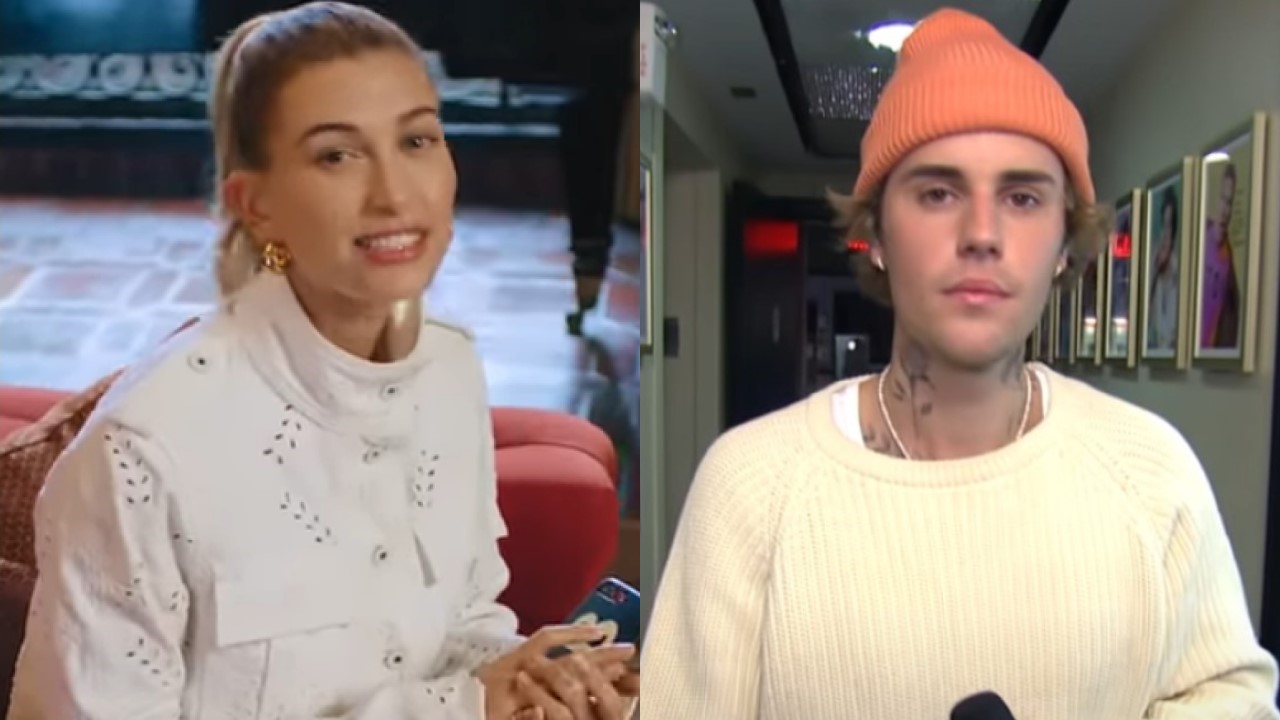Nicolas Cage's Color Out Of Space Ending: What Happened And What Does It Mean?
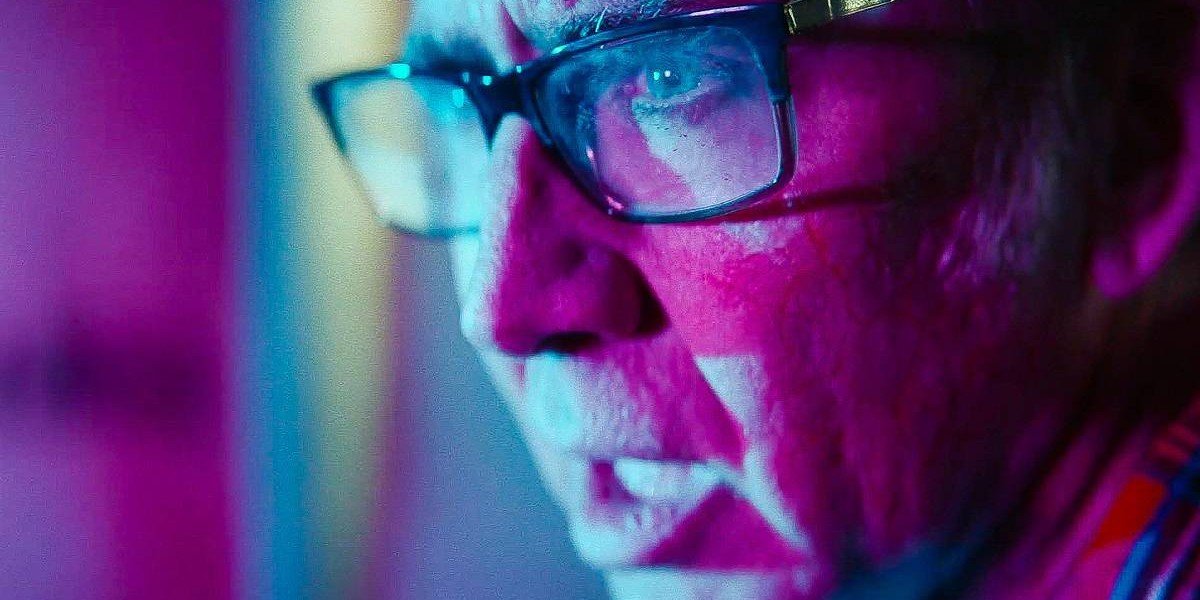
Your Daily Blend of Entertainment News
You are now subscribed
Your newsletter sign-up was successful
By many people's estimations, Color Out Of Space is a totally nutso, out-of-this-world cinematic experience. Adapted from the short story of the same name by author H.P. Lovecraft, the newest Nicolas Cage movie comes from cult filmmaker Richard Stanley, making his return to narrative film-making since he was famously fired from the notoriously troubled production of 1996's The Island of Dr. Moreau. And it gets pretty bonkers — even by the famous actor's loose cannon standards. That's notably the case with its spooky-kooky ending, which might leave a few viewers scratching their heads in confusion as the credits roll.
If you have a couple questions after watching this wacky movie, we might be able to help. We'll try to explain (to the best of our ability) what the hell happened in this trippy, mind-bending science-fiction film, notably in its lurid, surreal, go-for-broke final few moments. After all, we don't think everything in Color Out Of Space should be given an easy explanation, and there are obviously a few things we don't know for certain. It's only fitting if some things are left mysterious. But we'll explain what we know. Also, obviously, you should expect a few spoilers for Color Out of Space to follow. You've been warned accordingly...
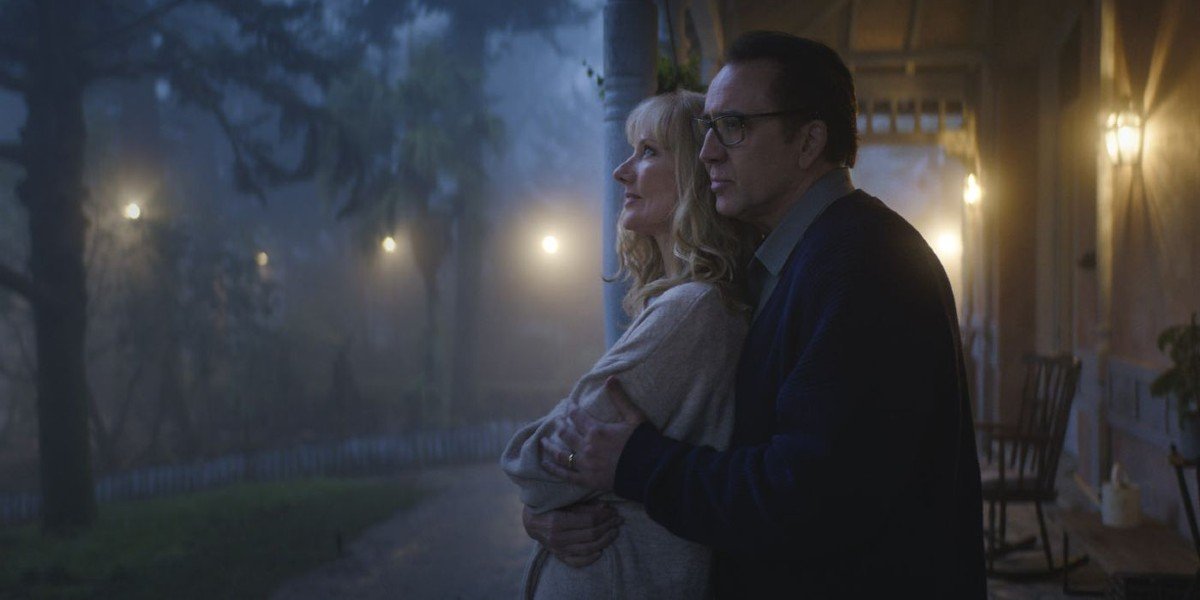
What Happens In Color Out Of Space (2020)?
Adapted from one of H.P. Lovecraft's most famous stories, one that is reported to be the prolific author's favorite of his short stories, Color Out Of Space tells the story of the Gardner family, led by patriarch Nathan Gardner (Nicolas Cage), who moves his family into his father's rural farmland after years of protest to live in peace and seclusion, as well as grow ripe tomatoes and raise alpacas for their milk. His wife, Theresa (Joely Richardson), is a work-loving busy bee who recently got a mastectomy, and they share three children together: daughter Lavinia (Madeleine Arthur), who practices Wicca with the hope of restoring her mom's health, and sons Benny (Brendan Meyer), a teen who secretly smokes pot, and Jack (Julian Hillard), the youngest. None of the kids have grown to farm life.
The family feels strained, notably with Theresa having trouble with work, Nathan struggling to adapt to the farm lifestyle (while also unable to have sex with his wife since her operation), and the kids feeling uncertain about their new surroundings. In the midst of all this dysfunction, a meteor from space crashes into their yard and changes their lives. A bright glowing unidentified object with a color that's difficult to identify, this rock with an unearthly color cannot be described or explained in simple terms, and it causes a series of strange events to occur in this disgruntled household. Nathan can't escape the horrible scent that seemingly only he can smell, Theresa gets dazed and absent-minded, and Jack is allured and mystified by the well that's located near the fallen meteor. Eventually, before it can be properly investigated, the meteor disappears. But the Color still lingers on the land.
Nathan can't escape the horrible scent that seemingly only he can smell, Theresa gets dazed and absent-minded, and Jack is allured and mystified by the well that's located near the fallen meteor. Eventually, before it can be properly investigated, the meteor disappears. But the Color still lingers on the land. And naturally (or, rather, not-so-naturally...), more strange occurrences occur.
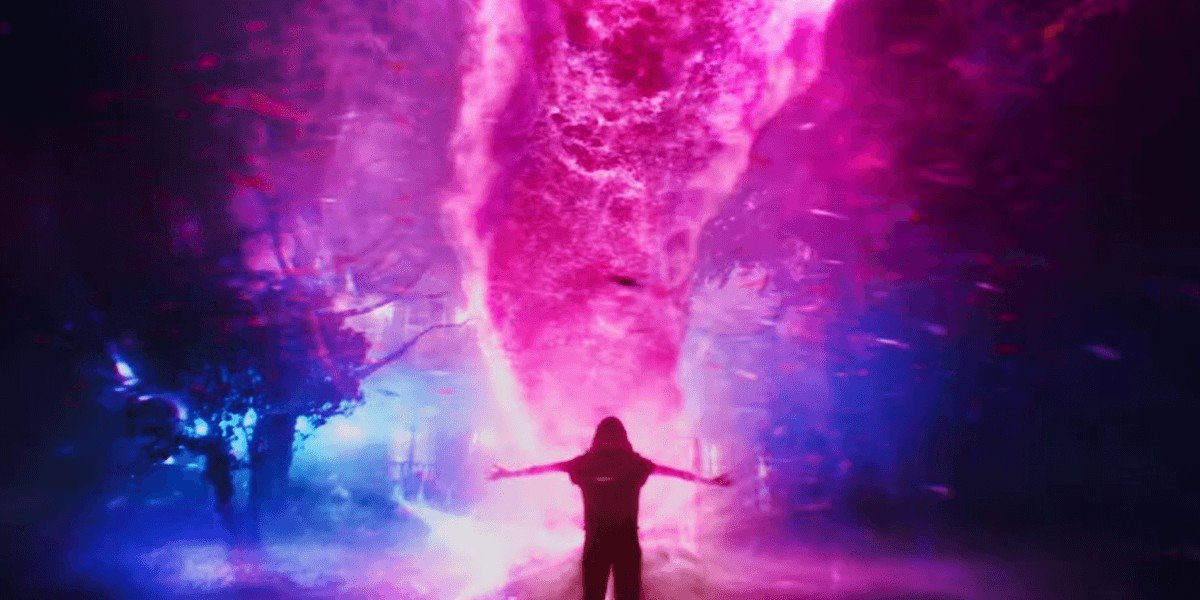
How Does Color Out Of Space (2020) End?
As the madness continues, Nathan grows mad himself. The father becomes delusional and hysterical, acquiring a weird cadence that sounds not-too-dissimilar to the one heard from our current U.S. president — particularly as the vegetation grows into weird, vibrant colors. Meanwhile, Jack hears voices from an unknown source, while the local animals — including the family dog and the alpacas — also adopt odd behaviors. Eventually, when they're in the barn late one night and try to escape, Jack and Theresa are struck with a bolt of Color. The mother and son become infused together in a disturbing tangle.
With Nathan continuing to lose his grip on reality, only Benny and Lavinia have anything resembling an understanding of their distorted surroundings, which the children realize is growing dangerously unstable. With the electronics malfunctioning, including their cellphones and their car, the Gardner family can't escape. Later on, Nathan discovers the alpacas have fused together, and he shoots the mangled mess of mammals in an act of fear and aggression. With the mother-son disfigurement moved into the attic, it's unclear what the Gardner family should do, especially with this horribly infused combo screaming in pain. It is shortly after Nathan shoots the alpacas that he returns to the attic with a shotgun to shoot his wife and son, but the father cannot kill them. Meanwhile, as Nathan continues to feel anguished, Lavinia and Benny conspire to leave the mutated house together.
Your Daily Blend of Entertainment News
Before Benny and Lavinia can escape, however, Benny hears what he believes is the family dog in the well. He attempts to save the pet, but it leads to his own downfall (in more ways than one...) as the Color bursts forward from the well and kills him. Lavinia's threshold on her sanity grows dim as the local sheriff and Ward (Elliot Knight), the good-natured hydrologist who studied the water in the area for the building of a hydroelectric dam (and the person who tried to warn the Gardners not to drink the water, which was advice that wasn't taken too seriously), go to the house. They witness the mother-son hybrid just before an unhinged Nathan shoots them dead. As Ward, Nathan, Lavinia and the Sheriff attempt to run away from the house, the Color emerges once more from the well, sparking Nathan in its lighted fury, which only further breaks the already-deranged father's fleeting sanity.
Nathan tries to kill Ward before the sheriff quickly shoots him. After witnessing her father's demise and dies in her arms, Lavinia decides that she won't leave the farm, opting instead to stay in this demented habitat. Meanwhile, Ward and the Sheriff make their way to save Ezra (Tommy Chong), an old hippie hermit in the area, but it's too late. The hippie has moved on from this plane of existence, with only his decaying corpse and a tape recording of his voice left in his place. The audio claims the Color wants to reanimated the world into its vision, to create it into something it can understand. It's at this point that Ezra's corpse explodes, and the Sheriff and Ward try to flee this deranged forestland. But the Sheriff isn't so lucky as a tree becomes animated and spikes its branch into his skull.
Ward makes an effort to save Lavinia, but she's been consumed by this otherworldly presence. The orphaned daughter, consumed by Color, touches Ward, which imprints onto Ward a strange vision of the Color's home, filled with tentacled creatures and ever-clear light, before Lavinia accepts her fate and gets consumed by a tornado firestorm of Color. Ward runs into the abandoned home, filled with cadavers and otherworldly decay, and hides in the basement, hoping to escape the tidal wave of out-of-this-world destruction. He has seen visions of the Gardner family and other sights as time and space begin to fuse into one another, creating an unholy explosion of unearthly light. What follows is a sea of white hours later. The forestland is wiped of life and color, with only Ward left to survey the landscape of destruction.
As Color Out Of Space reaches its final moments, we are taken forward in time. It's unclear how much time has passed, but Ward has gray hair and smokes a cigarette as he looks out at the finished dam. In a monologue, he notes that he doesn't know what happened in that time, but he knows that he'll never drink the water in this demented place.
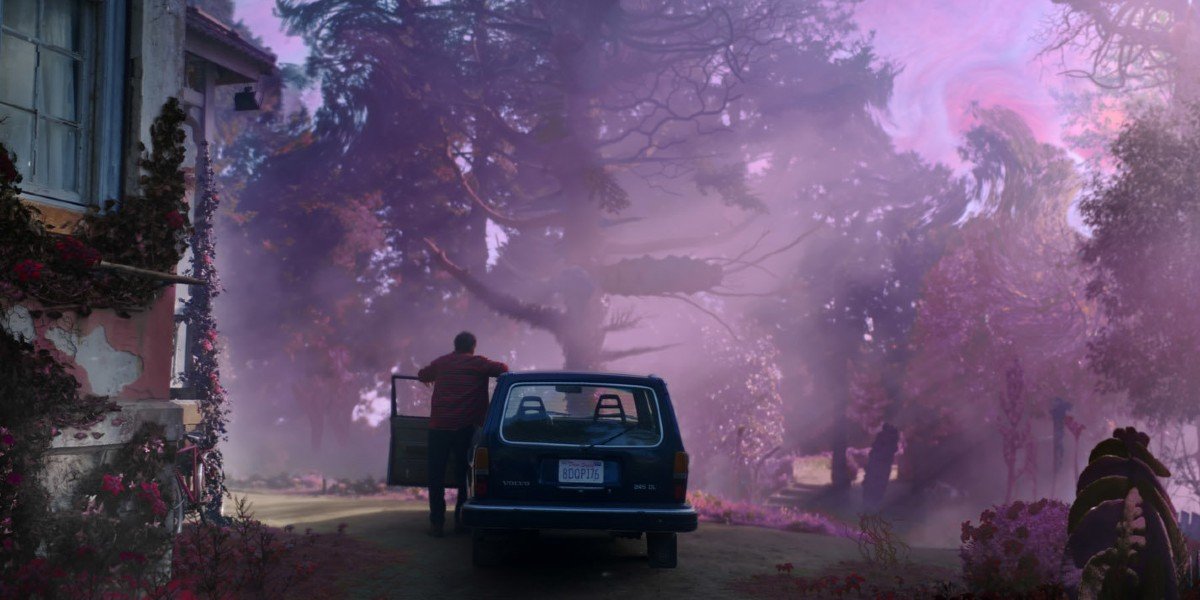
What Does The End Of Color Out Of Space Mean?
Ultimately, the ending of Color Out Of Space is whatever you wish to make of it. The story of Color Out Of Space can resonate (much like it has with H.P. Lovecraft's original text) because it dives into our fears of the unknown, and how the truly terrifying stuff that can really get under our skin — both literally and figuratively — are matters we likely cannot fully see or comprehend, yet impact our daily lives and potentially lead to our quick downfall.
Color Out Of Space talks about the environment, as it was confirmed by both Nicolas Cage and director Richard Stanley. Beyond the film's specific intentions, however, the broader ambitions of the sci-fi movie talk about the dangers that come in gradual measures, the sort of troubles that impact the world on a small scale before they impact us nationally or globally. It's made apparent that the Color is biding its time at the end, attacking this family and their unfortunate neighbors in its first iteration but looking to plant a further attack at some point in the future. Ward knows that the dangers lurk, but many others won't be so lucky. The impact of the Color was swift and not exactly subtle but generally unsuspecting, with the media refusing to believing it and the family believing that the contaminated water wouldn't actually impact them. Nevertheless, doubts and confusion caused decay.
Before we get into tin-foil hat territory, it doesn't appear to be entirely doom-and-gloom. While the ending of Color Out Of Space is quite morbid, it's not entirely without hope. Ward's survival suggests that humans can prevail, if maybe not in wide numbers, and that the threat might not be defeated so easily but humans can survive, much like he did during the movie's final moments. Alas, whether you choose to find anything uplifting in the ending is ultimately up to viewer interpretation. But there are also some interesting ideas introduced in the film involving family legacy and how our failures can be recurring. Nathan is haunted by his father, especially as he grows mad. Ward sees visions of the Gardner family's past during Color's attack. What the movie says about our past failures is left slightly unclear, but it's apparent that this attack is the result of humanity's past and present failures.
The story of Color Out of Space owes some similarities to that of, say, The Blob or Invasion of the Body Snatchers, both of which are classic B-movie material that continue to resonate with viewers and get modernized updates because they remain relevant. Oftentimes, what scares us most is the grand unknown, and Color Out Of Space often taps into that running source of inspiration throughout its bonkers story. While it might not be easy to make sense of its ever-growing nonsense, there are universal themes that are touched in this story, and it makes it clear why this new horror-comedy is earning some strong reviews and reactions from both critics and audiences alike — assuming they're willing to get on the movie's odd wavelength.
But what did you think of Color Out Of Space? Let us know your thoughts and theories on this kooky sci-fi horror flick in the comments found below.
Will is an entertainment writer based in Pittsburgh, PA. His writing can also be found in The Playlist, Cut Print Film, We Got This Covered, The Young Folks, Slate and other outlets. He also co-hosts the weekly film/TV podcast Cinemaholics with Jon Negroni and he likes to think he's a professional Garfield enthusiast.

